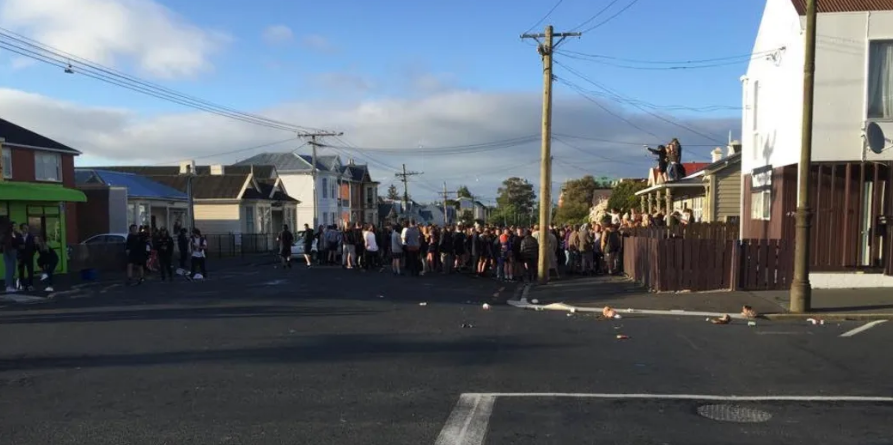
University of Otago students are sceptical proposed changes to Dunedin's Local Alcohol Policy will do anything to lower rates of hazardous drinking.
Dunedin City Council announced earlier this month it wants to make a number of changes aimed at reducing alcohol-related harm, particularly among Dunedin's significant 18-24-year-old population, that are designed to balance the Sale and Supply of Alcohol Act's requirements with the city's vibrant nightlife.
They include reducing off-licence trading by an hour from 10pm to 9pm, standardising on-licence opening times, and reducing early-morning trading hours for entertainment venues.
A student who wishes to remain anonymous lives in Castle St, known for its huge street parties, and doubts changes to off-licence trading will make much of a difference.
"Everyone that's drinking goes and buys it out like during the day and stuff, but I guess it will stop a bit of extra stuff happening. If everyone's finished with the alcohol and goes to get it a bit later, and then they end up getting way more smashed and doing more stupid things - it will stop that part of it, I guess."
The council said proposed changes to the Local Alcohol Policy were designed to balance legislative requirements with Dunedin's buzzing nightlife.
It is seeking public feedback weeks after a Coroner found the death of 19-year-old student Sophia Crestani at an overcrowded flat party in October 2019 was a tragic but likely preventable accident.
Her father, Bede Crestani, said student behaviour had improved since his daughter's death.
"The Hold Onto Your Friends group is a great example of that, where they're trying to educate, help assist and let people and let other students know of the of the dangers of of the excessive alcohol."
Hold Onto Your Friends co-founder Louisa Mason said when she first started at Otago University, drinking was the "cool" thing to do.
She thinks the culture has got worse.
"There's like, heaps of pressure to have a box in your hand when you attend events. I remember being second-year and thinking like I can't leave the house without a box - let alone not drunk - let alone without a box.
"So yeah, unfortunately it just seems that the drinking culture has actually subsumed the student culture."
Earlier in October the founders of BEE alcoholic lemonade went before the Alcohol Regulatory and Licensing Authority after providing 350 litres of free alcohol to a student flat during O-Week.
Otago University Student Association president Keegan Wells said students want a safer place to drink, like a student bar.
"It gives a place for students to socialise and to really be students in a safe and monitored environment.
"Most importantly, there's people there to say hey, you've had too much to drink, here's some water - which students when they're learning how to drink, really, at 18, won't be doing that themselves," she said.
Auckland adopted its local alcohol policy in August, which included a two-year freeze on new off-licence applications in some areas, and a strict 9pm closing time for all off-licence outlets including supermarkets.
Christchurch City Council is also developing a local policy.
Dunedin Mayor Jules Radich said while he isn't overly concerned about students drinking, he believes it should be in moderation.
Alcohol regulation was a balancing act, he said.
"I think it's important to have those restraints and moderation in our society. But similarly, I think it's preferable to have people able to access alcohol, under safe conditions, and enjoy the benefits and pleasures of a drink with some moderating influences on having too much."
Dunedin alcohol harm prevention officer Sergeant Steve Jones said the city's drinking culture is slowly improving.
"The culture is very different now to what it was, say back in the mid to late 2000s, with the Castle Street riots and things like that.
"We're working very closely with other agencies - with the university, with the Otago University Students' Association and with the students themselves - to try and assist them on their journey and provide a bit of pastoral care as well."
Mr Crestani wants the alcohol industry to get involved in the current efforts in North Dunedin to promote, educate and help students to drink safely.
Consultation on the proposed changes closes on November 14.












